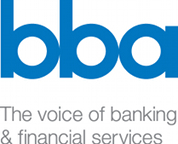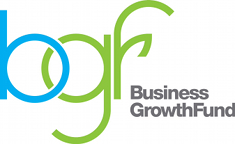Tax Benefits
Angel Investors who pay tax in the UK have access to important Tax relief schemes that have been provided by the Government in recognition of the risks that angel investors take and to show their backing for this important source of finance for small businesses.
These measures are offered under the Enterpise Investment Scheme offering up to 30% tax break to investors in qualifying small businesses and also the new Seed Entperise Investment Scheme offering up to 50% tax break for investing in qualifying very early stage seed and start up businesses.
The Enterprise Investment Scheme (EIS)
Under the Enterprise Investment Scheme (EIS) Angels can gain both income tax and capital gains tax relief to investors who subscribe for eligible shares in small unquoted companies that qualify under the scheme.Click here for further information on the EIS scheme.
What relief is available for EIS investments
- 30% income tax relief on up to £1,000,000 of investment per tax year (plus the possibility of carrying back income tax relief to the previous tax year)
- Exemption from capital gains tax on disposal of EIS shares after the end of the three year relevant period
- Allowing losses on the disposal of the EIS shares to be set off against either income or capital gains
- Unlimited capital gains tax deferral in respect of the disposal of other assets, on amounts reinvested in EIS shares
- Inheritance tax relief for EIS investments
What Companies qualify for EIS?
In order to access EIS relief, the business that you intend to invest in must satisfy the requirements under the EIS scheme which are very specific. Notably the business must:
- Not be listed on the stock exchange (except under AIM)
- Have a permanent establishment in the UK
- Have gross assets of not more than £15m immediately pre-investment and £16m immediately afterwards
- Have fewer than 250 employees at the time of investment
- Are not under the control of another company
- Carry on a qualifying trade as defined by the EIS
How do I claim the relief?
There is a formal application process made through HMRC. When considering making an investment and want to take advantage of the EIS scheme, you need to gain confirmation that the business will qualify for EIS relief before committing to invest. You should normally ask the investee company to demonstrate that they have obtained provisional approval from HMRC that the business qualifies for EIS investment, in advance of you closing the deal and the shares being issued.
It is important to note that the levels of reliefs from taxation can change and the value of a relief depends upon the individual circumstance of the investor. Not all investors will qualify, for example, there are rules about whether you were previously connected to the business. There are also restrictions on the type of shares that can be issued which must be Ordinary shares.
If you are considering making an EIS investment you should ensure you fully understand the rules and also seek professional advice. Click here for further information on the EIS scheme.
The Seed Enterprise Investment Scheme (SEIS)
In April 2012, the Government launched a new scheme to provide particular encouragement to angel investors. This new scheme offers up to 50% relief on making investments in very small businesses with growth potential that are at a very early seed or start-up stage which have only just started trading and may have little or no revenues and very few assets.Click here for further information on the SEIS scheme.
What relief is available through SEIS scheme?
- 50% income tax relief on up to £100,000 across all investments per tax year
- Exemption from capital gains tax on gains realised from disposals of other assets in 2012/13 only where the gains are reinvested in SEIS companies in the same tax year
- Inheritance tax relief for SEIS investments
- Exemption from capital gains tax on disposal of SEIS shares after 3 years
- Allowing losses on the disposal of the SEIS shares to be set off against either income or capital gains
As with EIS, there are a number of requirements in relation to the investors. For example, investors must be unconnected with the company and under SEIS the investor, together with associates, cannot own more than 30% of the ordinary share capital, the issued share capital or the voting power.
Which companies qualify for SEIS?
In order to qualify for the SEIS, a company must:
- be undertaking, or planning to undertake, a new qualifying business
- have fewer than 25 full-time employees
- have gross assets of less than £200,000 at the time of the SEIS investment
- have been carrying on the particular trade at the date of the relevant share issue for less than two years, though the company could have been established for a longer period
These rules are not exhaustive and there are various other conditions that need to be met and maintained.
How much can a company raise under the SEIS?
The maximum qualifying companies will be able to raise is £150,000 under the scheme, and funds raised must be used within three years. SEIS funds cannot be raised by a company that has raised either EIS or VCT monies previously.
However, the relief cannot be claimed until at least 70% of SEIS funds have been used for the purpose for which they were raised, or the new qualifying trade has been carried on for at least four months. You can then make further investments in the company under the EIS scheme once 70% of the SEIS funds raised have been spent by the company.
As with EIS, the company has to gain clearance from HMRC and should provide you with information that they have gained provisional approval if possible. Be sure you are fully informed about the scheme and whether you and your investee company qualify before you make the investment. Click here for further information on the SEIS scheme.






 The UK Business Angels Association is registered in England and Wales (Registration number 02127064).
The UK Business Angels Association is registered in England and Wales (Registration number 02127064).
